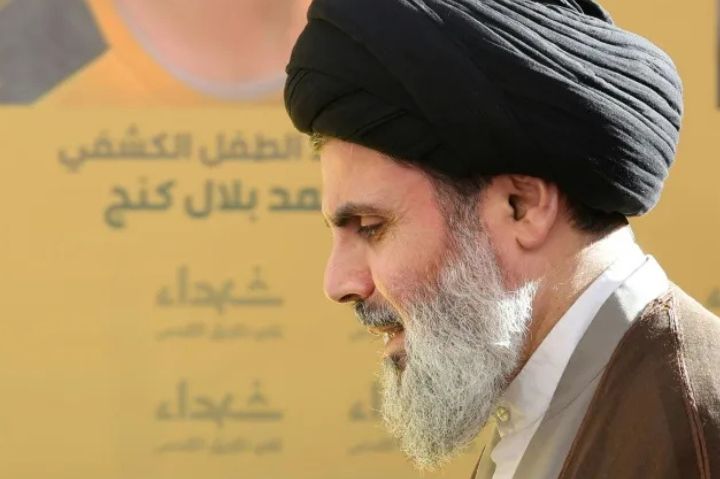In a stunning escalation of tensions, Israel has delivered a devastating blow to Hezbollah, eliminating the group’s would-be leader, Hashem Safieddine, in a high-stakes airstrike. The Israeli Defense Forces (IDF) confirmed that Safieddine, a key figure expected to succeed Hassan Nasrallah, was killed in a targeted operation in southern Beirut. This is the latest in a string of assaults that have decimated Hezbollah’s leadership, leaving the Iran-backed militant group in turmoil.
Safieddine, Nasrallah’s cousin, had been widely considered the next in line to lead Hezbollah, a group already reeling after Nasrallah’s own assassination in late September. Nasrallah, one of Hezbollah’s founders, was killed in another Israeli airstrike, marking a relentless offensive against the group.
According to the IDF, Safieddine was eliminated in an air raid on October 8, as part of an ongoing operation aimed at dismantling Hezbollah’s infrastructure. The strike not only killed Safieddine but also wiped out 25 other senior Hezbollah figures, significantly weakening the group’s chain of command. An IDF statement described Safieddine as an instrumental figure in the group’s decision-making processes, with strong influence over its terrorist operations.
“Hashem Safieddine was a critical player in Hezbollah’s leadership, particularly in his role during Nasrallah’s absence,” the IDF stated. “His death is a major blow to the group’s operational capacity.”
Hezbollah, however, has yet to officially confirm Safieddine’s death, leaving the organization in apparent disarray as Israel intensifies its military campaign.
The airstrike follows weeks of Israeli operations aimed at neutralizing Hezbollah’s influence along the Lebanon border. Defense Minister Yoav Gallant declared that Israel would not allow Hezbollah to regain control in the region, and vowed to dismantle the group’s military capabilities.
Further complicating the situation, Israel has also unveiled intelligence exposing a secret Hezbollah bunker under a Lebanese hospital, allegedly hiding £400 million worth of gold and cash. Israeli officials released footage showing a complex underground network, believed to be used by Hezbollah’s elite members, deepening the group’s association with covert operations and illicit finances.
This is all unfolding as Israel engages in war on two fronts—against Hezbollah in Lebanon and Hamas in Gaza. In a broader strategy, Israeli officials have hinted at retaliatory strikes on Iran, which is widely seen as the puppet master behind both groups.
For Hezbollah, the loss of Safieddine represents a massive leadership void at a critical moment, with Israeli strikes pushing the militant group further into chaos. The question now remains: How much longer can Hezbollah hold out?












